South Africa is one very colourful and diverse country. We have people from all different races, cultures and religions here – our people are referred to as the Rainbow Nation, a title that I am very proud of. We are home to the English, the Afrikaaners, the Xhosa’s, Indians, Chinese…the list goes on!
I Live In The South African Province Of Kwa Zulu Natal
One of the cultures that is the most prominent in the area where I live, Kwa Zulu Natal, is that of the Zulu people. The Zulus are the founders of this land and the name Kwa Zulu means place of the Zulus. Fact: Natal was the name given to the area when it was colonised by Britain, when this colonisation came to an end, it was renamed “Kwa Zulu Natal. Here in KZN (the abbreviation for the province), the Zulu people make up the majority of the population and while they have absorbed western ways and modern trends, many of them still very much practice the traditions and customs of their original culture.
While most of the Zulus live exactly like your average westerner, there are still quite a few who still prefer to live as they once did, with their tribes out in the rural areas. Here they still live in their traditional grass and mud huts, they often still eat from the land and they take their culture and birth-right very seriously.
Near to where I stay, there is still just such a village! These villagers let you visit and for a fee they will perform their dances, let you into their huts and teach you their ways. These people belong to the Ghasa Clan, a traditional Zulu tribe whose ancestors date back hundreds of years.
The Gasa People
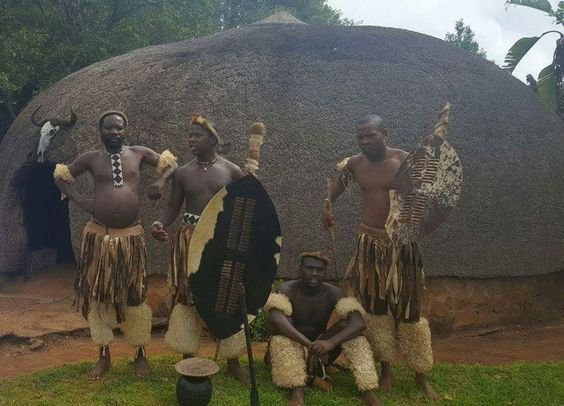
The Zulu culture is extremely unlike the Western culture, the traditions, beliefs and general way of life is very different.
Traditional Zulu Clothing
Think animal skins, grass and colourful beads. The traditional Zulus dress according to their marital status. Usually the outfit of man consists of a skirt made from animal fur (those with the highest status in the tribe wear leopard skins), women wear grass skirts. These days the skirts are usually placed over some sort of undergarment, to keep things more modest. Married men wear animal skin headbands. It is custom for unmarried women to go topless, but today this is a bit of a taboo, so they compensate by wearing a bikini top. The ladies decorate their headdresses and clothing with an array of colourful beads!
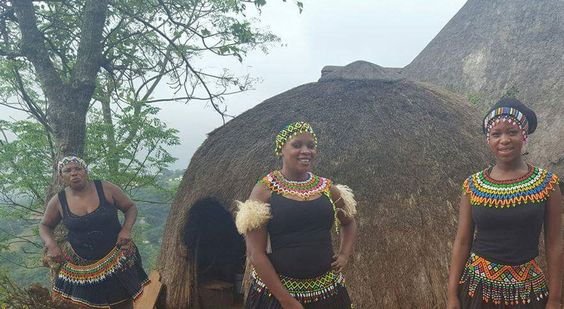
Zulu Cuisine
Meals consist mostly of maize, vegetables such as pumpkin, cabbages, tomatoes and onions, nothing much different here. But the Zulu people have been known to brew their own beer from sorghum and maize. I’ve never tasted the beer but is said to be refreshing with a somewhat sour taste. A very traditional drink, which has actually been boxed and can now be bought in stores, is Amazi. In a nut shell: Amazi is curdled sour milk (not my cup of tea)! Even more westernised Zulu people enjoy this traditional drink.
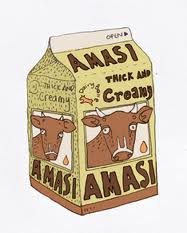
Zulu Beliefs
The Zulu people believe that their ancestors live in a spirit world, and regard their ancestors as intermediaries between themselves and this world. They place great emphasis on their ancestors and they are often praised and worshiped. When someone dies, their funeral is taken very seriously. Traditionally, Zulu people believed in Sangomas (spiritual healers), since sicknesses and bad luck were seen more as the wrath of an angry ancestor than a health issue or just being in the wrong place at the wrong time.
“It is believed that all ancestors must be kept in the memory of the family otherwise, if forgotten, they may seek to be remembered by visiting trouble on them. – source”
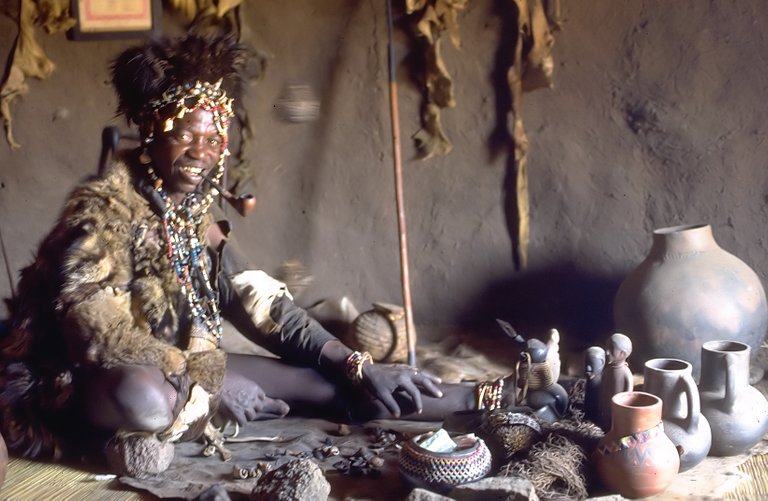
Other Zulu Practices:
- Zulu Dancing. The Zulu people have a creative and unique way of dancing, a lot of the moves entail kicking legs up high, shaking of the arms and hands and dancing with instruments such as sticks, spears and drums.
- Crafting out of clay, beads and grass/leaves. The Zulu nation are born artists and creatives and are known for their colourful beadwork, sculpturing and baskets.
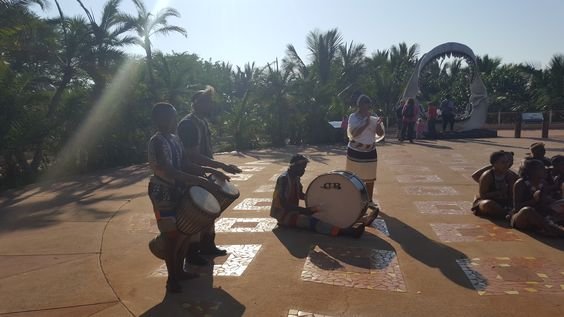
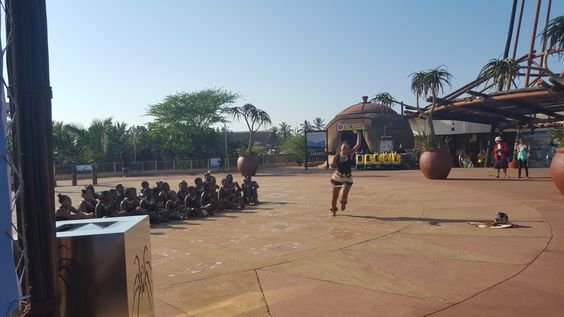
How To Say Hello In Zulu
Sawubona (pronunciation: s-ow-oo-baw-na)
The Zulu people have strong family bonds and uncles and aunts are often considered as important as mothers and fathers. They are friendly people - whether they still practice age old traditions or are or follow western ways. The Zulu people offer a true look into South African history, especially since they have know the land for much longer than any other race or culture.
How To Say Goodbye In Zulu
Hamba kahle (pronunciation: ha-ummba, ka-gglair)
On that note -
Nice post @sweetpea. I am also a Zulu but do not worship ancestors but a Living God. Therefore not all Zulus believe and sangomas. You can read my post here to get some understanding about what i'm trying to clarify. https://steemit.com/religion/@veejay/the-living-word-what-everyone-needs-to-know-about-the-living-word
Politics aside, we live in a beautiful and amazingly diverse country
Great post, thanks for sharing!
Thanks interesting culture is very important in South Africa
Very interesting. I had heard much about the Zulu people but after reading this I feel like I have visited the place. Thank you. Hamba kahle for now.
Thank you for taking part in this months #culturevulture competition. Good Luck
This post has received a 1.61 % upvote from @booster thanks to: @eroche.
Good Luck!This post was resteemed by @resteembot!
in the introduction post.Learn more about the @resteembot project
Peace, Abundance, and Liberty Network (PALnet) Discord Channel. It's a completely public and open space to all members of the Steemit community who voluntarily choose to be there.Congratulations! This post has been upvoted from the communal account, @minnowsupport, by sweetpea from the Minnow Support Project. It's a witness project run by aggroed, ausbitbank, teamsteem, theprophet0, someguy123, neoxian, followbtcnews/crimsonclad, and netuoso. The goal is to help Steemit grow by supporting Minnows and creating a social network. Please find us in the
This post has received a 0.63 % upvote from @drotto thanks to: @banjo.
Very nice post, well done @sweetpea, from a fellow Kwazulu Natalian! Interesting that the Gasa clan run the village. Our longtime gardener is a Gasa, his brother and nephew have over the years worked for us on building projects as well, very loyal and sincere people. Very blessed to be part of the rainbow nation, despite all the political corruption.
Yes, politics aside, we live in a beautiful country! I have visited the Gasa village a few times and they do seem to be very lovely people. Glad to find someone else from KZN here in Steemit, following you :)
I love the beads and headwear on the ladies, they look lovely. Thanks for sharing, I love reading about different customs and cultures.
The beadwork really is beautiful! I love to learn about cultures too, its so facinating to learn how differently people can live.
Hi @sweetpea
I am from the Culture Vulture for CNers, a cross-culture translation project in collaboration with @ eroche and carried out by @ deanliu and me. We'll pick at least one article every week and translate it into Chinese, aiming to bring cultural diversity to the #CN community.
I am here to ask for your permission, to allow us to translate your work into Chinese.
Author's liquid reward (SBD) from the translated post will be used for supporting the Culture Vulture Challenge project (60%) and returning to the original author (40%). (This portion might need to be shared among authors if more than one English posts are merged in one Chinese post.)
Please feel free to ask us anything regarding this project. And please notify us if you do not wish your work to be translated. Thanks.